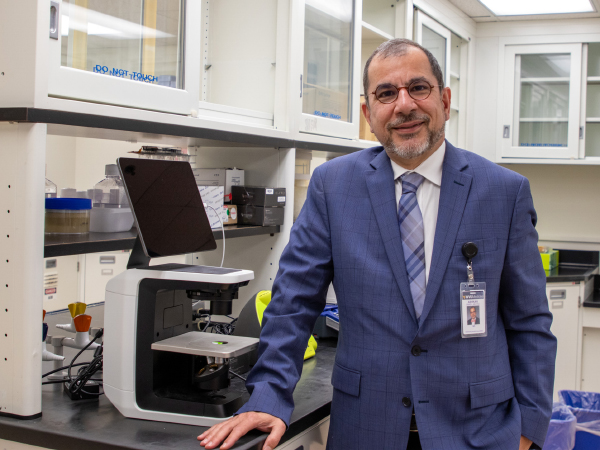A phase II trial investigating the anti-TIGIT cancer immunotherapy tiragolumab plus Tecentriq (atezolizumab) compared with Tecentriq alone as a first-line treatment for people with PD-L1-positive metastatic non-small cell lung cancer showed that the combination improved progression-free survival.
The full results from the CITYSCAPE trial, sponsored by Genentech, were featured as an oral presentation at the European Society for Medical Oncology Immuno-Oncology Congress 2021.
After 2.5 years median follow-up, tiragolumab plus Tecentriq continued to show an improvement in the intention-to-treat population (n=67), driven by the PD-L1-high population (TPS ≥ 50%) (n=29). In the ITT population, the combination improved PFS by 38% (median PFS=5.6 vs. 3.9 months; HR=0.62, 95% CI: 0.42-0.91) and improved overall response rates (38.8% vs. 20.6%) compared with Tecentriq alone.
A predefined exploratory analysis in the PD-L1-high population showed a 71% reduction in the risk of disease worsening or death (median PFS=16.6 vs. 4.1 months; HR=0.29, 95% CI: 0.15-0.53) and a clinically meaningful improvement in ORR (69% vs. 24.1%) with the combination compared with Tecentriq alone.
The analysis also showed that tiragolumab plus Tecentriq improved overall survival, a secondary endpoint of the study, in the ITT population, which was driven by the PD-L1-high population.
After 2.5 years median follow-up, median OS was 23.2 vs. 14.5 months (HR=0.69, 95% CI: 0.44-1.07) in the ITT population. The exploratory data in the PD-L1-high population showed a clinically meaningful OS improvement. The median was not reached for the tiragolumab regimen and is projected to be greater than 30.3 months based on the lower confidence interval (NE [30.3-NE] vs. 12.8 months [4.7-24.2]; HR=0.23, 95% CI: 0.10-0.53).
Data suggest that the combination was generally well-tolerated, showing similar rates of Grade 3-4 treatment-related adverse events when adding tiragolumab to Tecentriq, compared with Tecentriq alone (22.4% vs. 25%).
The phase III SKYSCRAPER-01 trial is currently ongoing to confirm these results in the PD-L1-high population, with the goal of bringing the treatment option to patients. Earlier this year, tiragolumab was granted Breakthrough Therapy Designation by FDA.
Since 2020, Genentech has initiated five phase III trials evaluating tiragolumab plus Tecentriq in early and metastatic disease in lung (SKYSCRAPER-01, SKYSCRAPER-02, SKYSCRAPER-03) and esophageal cancers (SKYSCRAPER-07, SKYSCRAPER-08). Tiragolumab is also being evaluated in other solid tumors as well as in hematological cancers.






